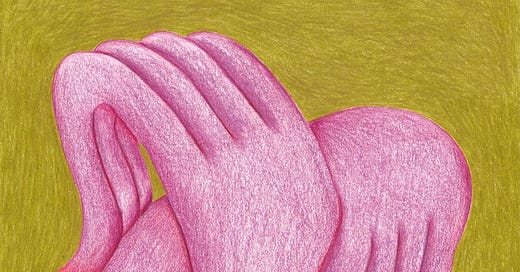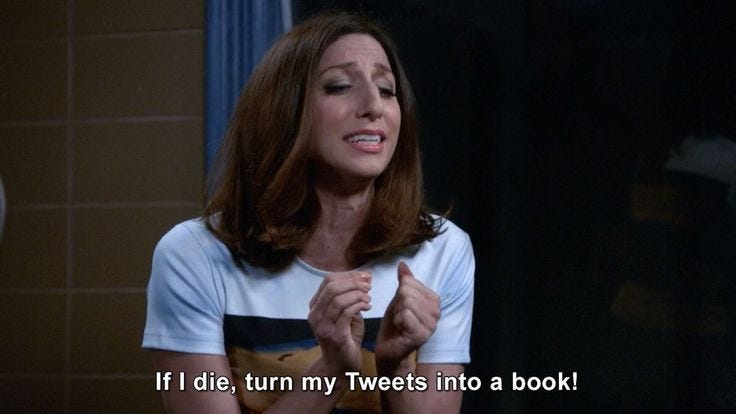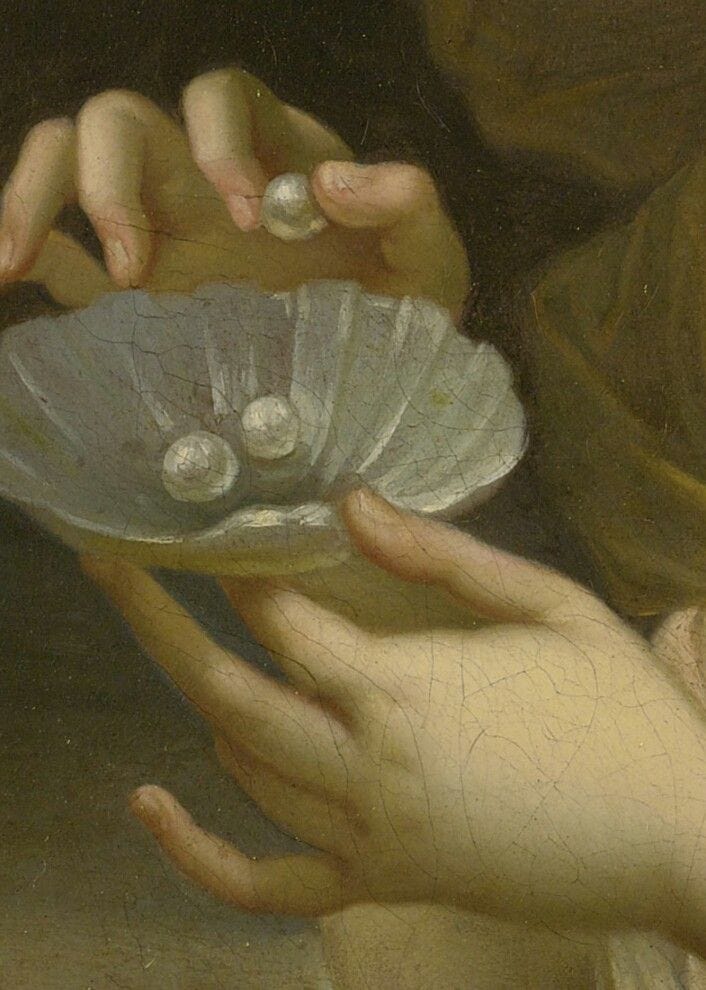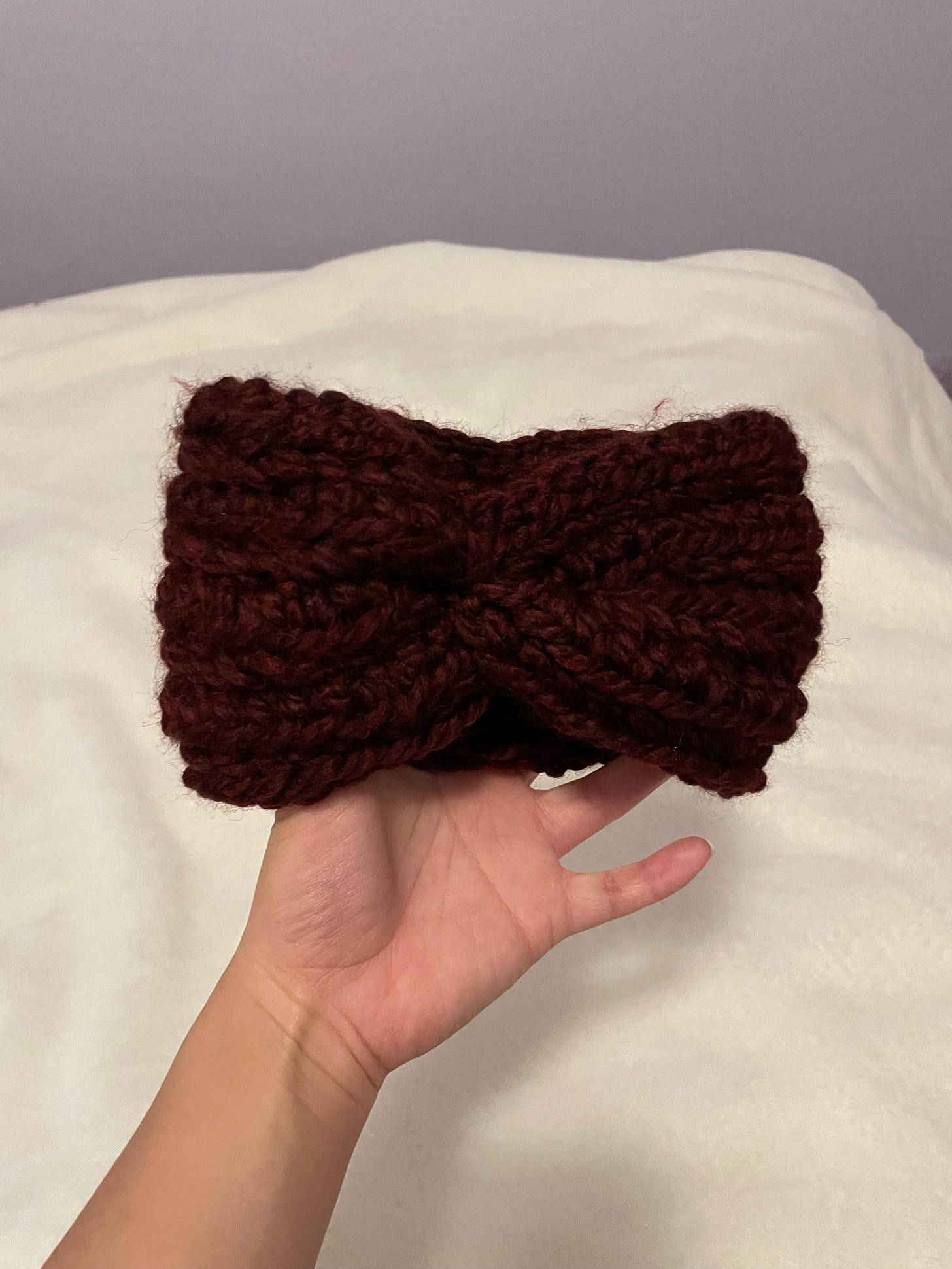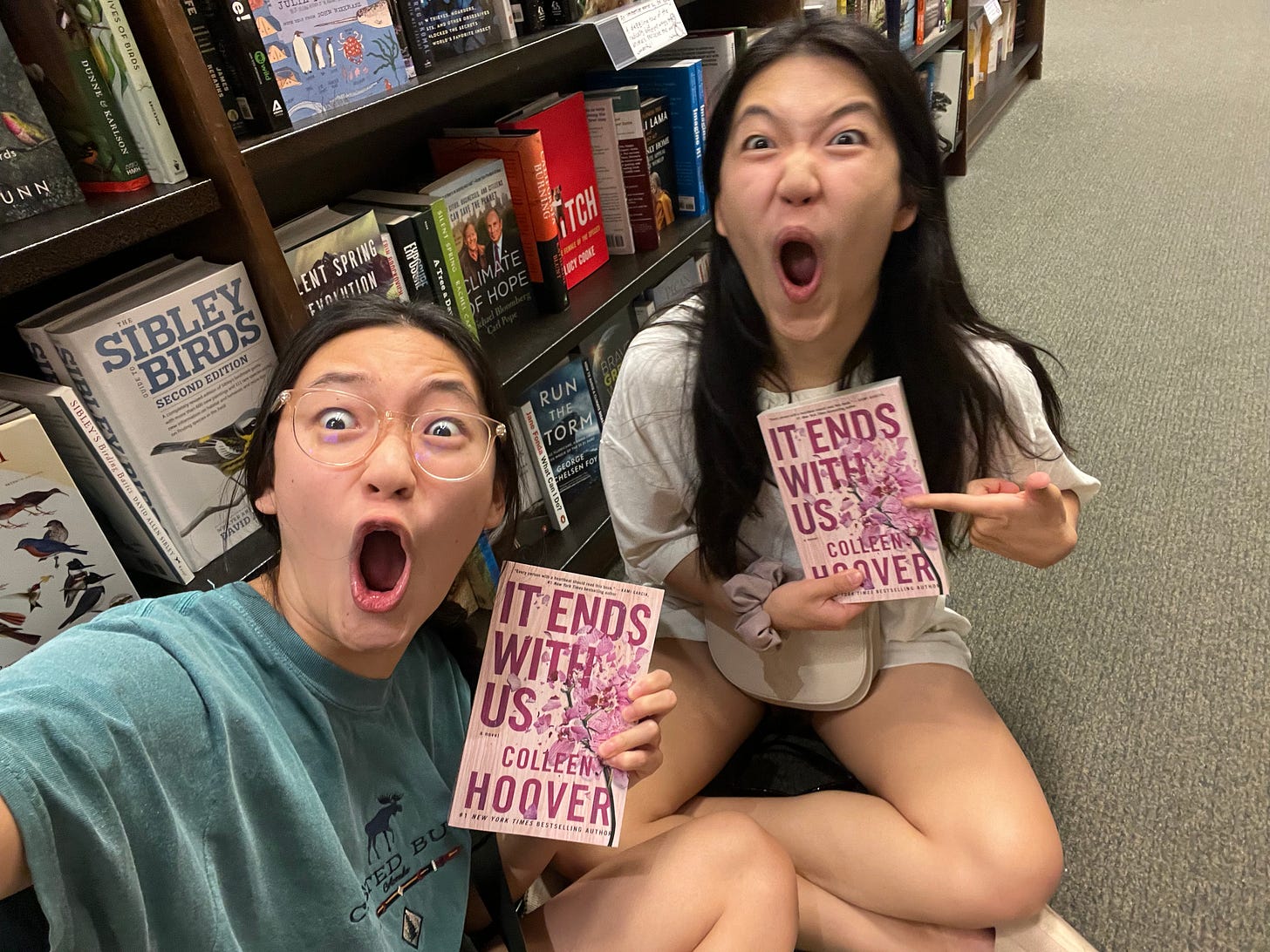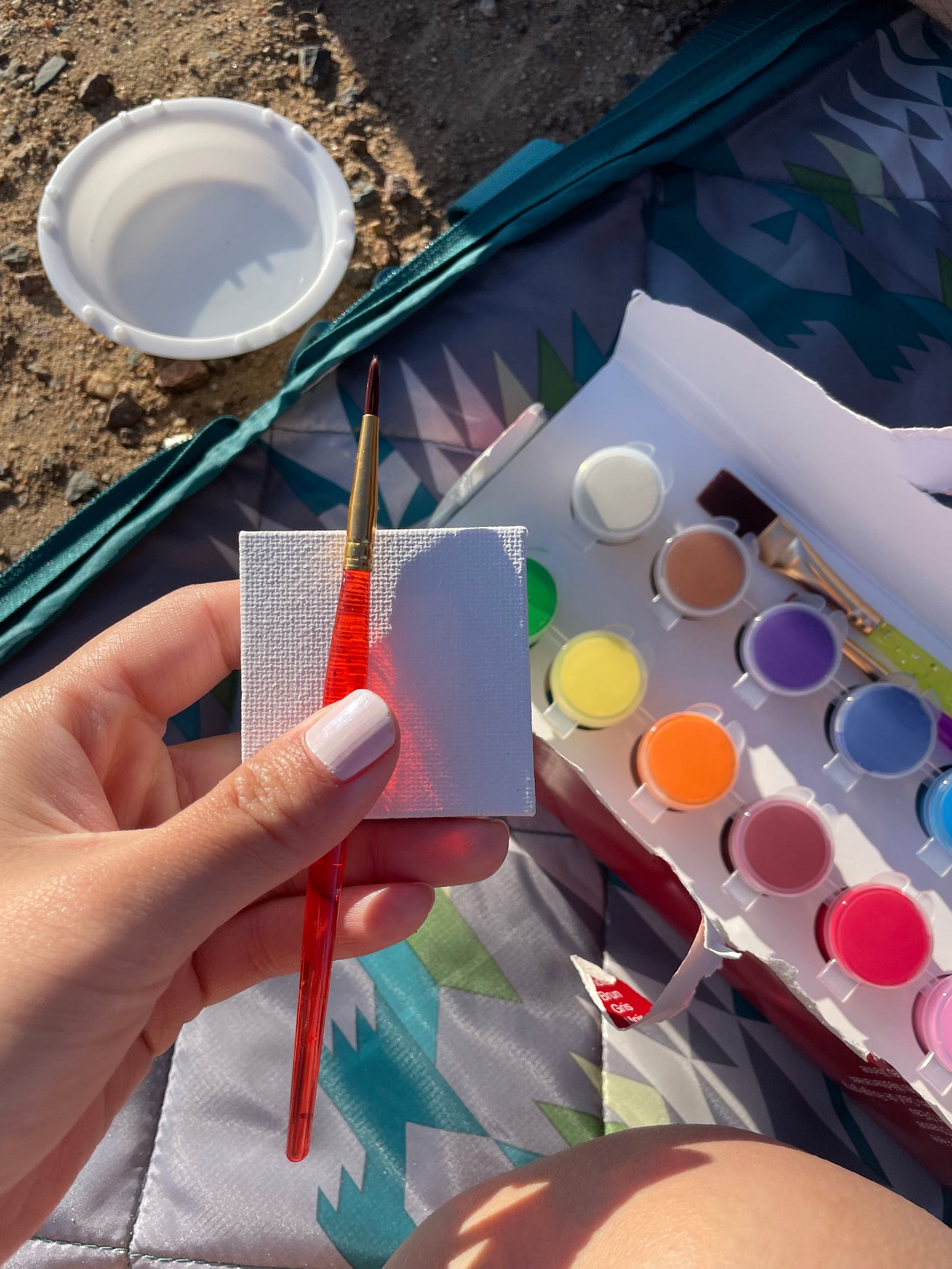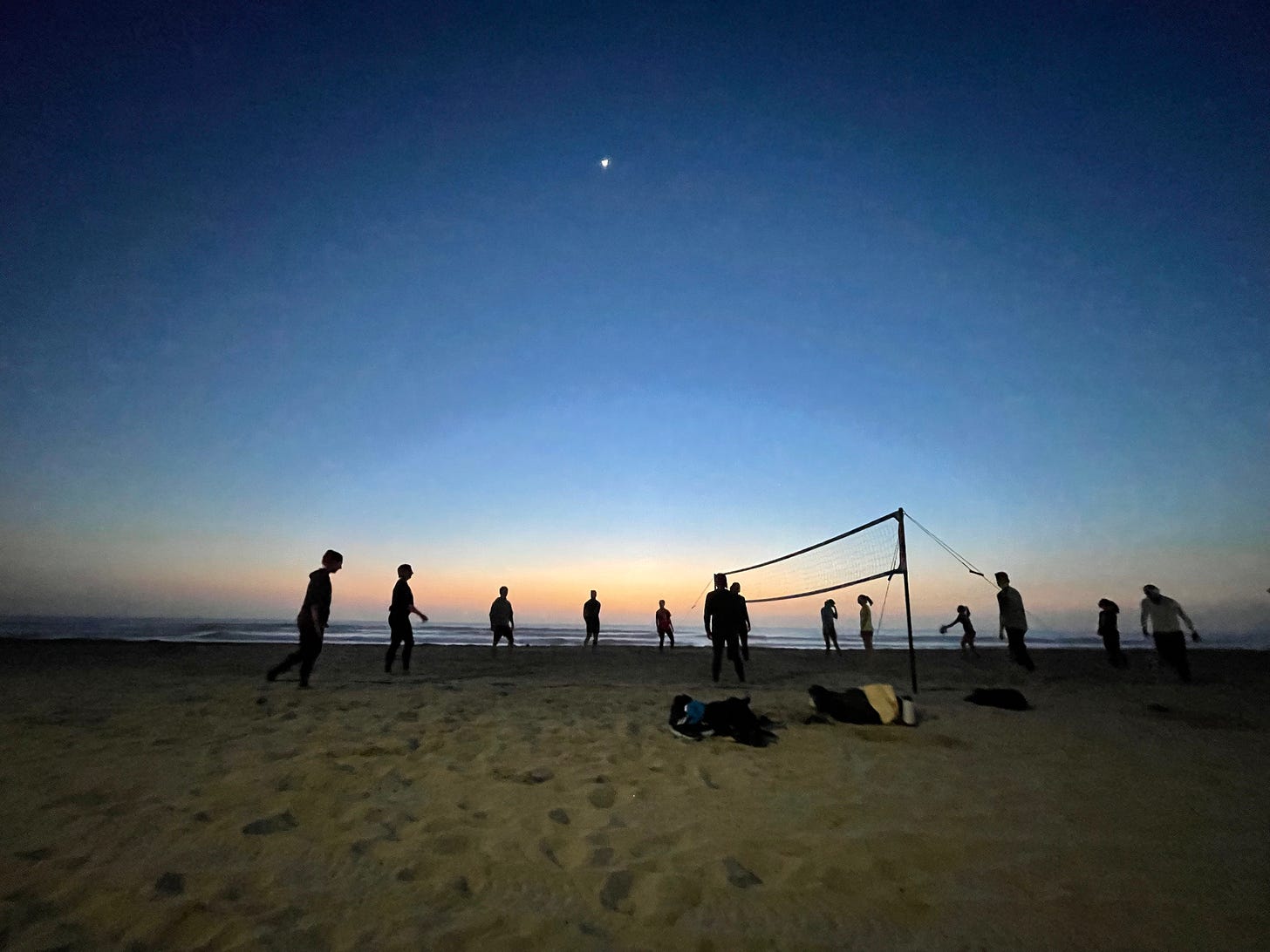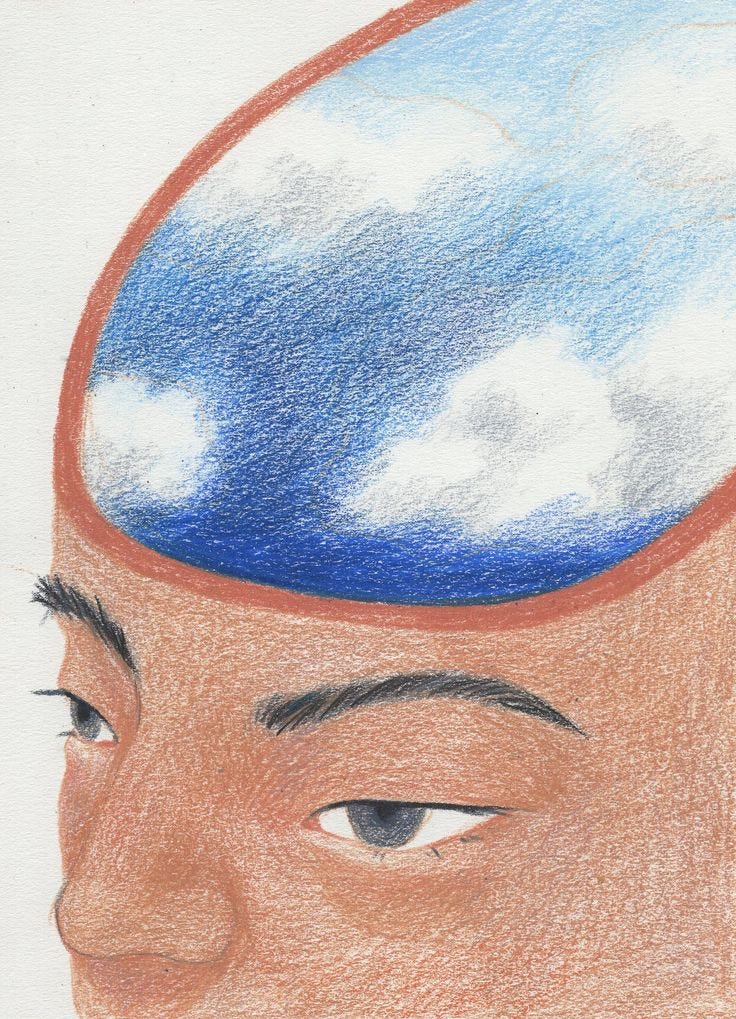The idea that’s sitting - well, relatively manspreading - in a loveseat within the foyer of my mind is: one of the biggest accomplishments in life is just knowing yourself.
As you already know, we tend to get to know ourselves through everything around us: art, politics, history, hobbies, friends, food. I’m probably not the first person to tell you that it’s okay to be mediocre at anything you’re learning for the first time, or that your interests don’t really define you.
But, I could be the first one (in awhile, who knows) to explore why you feel the pressure to be something at all, and how to crush those pressures in your palm. It’s time to close your fingers over them, and open them back up to reveal a diamond of epiphany and self-realization.
Basically, I’m just saying we could all be better, at knowing ourselves a little better.
Lining up for literature
If literature resonates with you, then hopefully I can get to your heart through there. There’s an interesting history to the accomplished lady - one that’s easy to spot in Jane Austen’s Pride and Prejudice and Emma, where we see characters like Elizabeth and Emma, and their relationships subvert ideas of womanly, artistic respectability in “music, singing, drawing, dancing, and modern languages.”
When Elizabeth and Emma each marry into larger fortunes due to their intellect, or “…{possessing} a certain something in {their} air and manner of walking, the tone of {their} voice, {their} address and expressions…”, it pulls into question whether artistic hobbies or intellect demands more respect. In Sense and Sensibility, Austen suggests that genuine conversation would potentially be preferable over stuffy discourse - that is, meeting “…for the sake of eating, drinking, and laughing together, playing at cards, or consequences, or any other game that was sufficiently noisy.”
The roots of this artistic dilemma still tightly embrace the earth of modern day. In other words, there are grains of literature and history that have been baked into our society that imply an accomplished lady is a worthy one, but inquire what makes a lady ‘accomplished.’ In the face of respectable intellect - the idea, perfume, and essence of it - we’ve arguably also adopted this desire to display our wit, intelligence, strategy, and emotional resources in order to rise to a level that feels higher than where we’re currently at.
Somehow, nothing has truly changed since centuries ago (or at least, from this reference point of Jane Austen’s writing). The idea of accomplishment has often been a mean-spirited one (just look at Caroline Bingley). There are tons of modern Carolines - whether they’re elderly or a part of the angsty youth - who especially exhibit endless snob.
There’s a palpable desire for young people to prove we’re too grown for our body, and to somehow express that: yes, we, indeed, are first married to the romance of ideas and knowledge; or, that perhaps, there is an abundance of philosophy hiding behind our eyes, only to be revealed by someone who’s worth enough to peel back our layers, or smart enough to understand and see us for who we are.
Pleading for philosophy
If philosophy is more your thing, then I’ll bring up René Descartes. When he said, “Cogito ergo sum,” or in full, "dubito ergo cogito ergo sum” (in English - “I doubt, therefore I think, therefore I am”), it seems that he meant it. Because we can doubt, we can think, so we are. The basic building block of philosophy: I exist.
To know anything is to first realize that you can doubt everything. There is a bottomless hunger for us to prove that we’re constantly thinking - and not only thinking, but thinking well, thinking differently, and thinking in groundbreaking terms. In other words, we’re just screaming into the void that we exist.
For some reason, we aspire to be more than the sewing, and crocheting, and watercolors, and bullet journaling, and gardening, and nail painting, and yoga, and fashion making, and makeup wearing. We want to be smart, because we have ideas, and we’re edgy, and we’re knowing. We’re all too aware, and we don’t know what to do with it.
However, when everyone tries to be different and self-aware all at once, and arguably, aims to do so in similar ways, the result is that no one is different. It’s like what Darcy said about the Accomplished Woman - that if every woman is so easily considered accomplished, then he may as well say he’s never seen one. As a result, it seems that most people would die to be interesting and well-liked - whether the affirmation comes from outside of them, or from within themselves.
Doesn’t it ever occur to anyone that it seems like everyone is just trying to be interesting, just for the sake of being interesting?
How do we crush these hindrances that sit before us - the rocky social pressures, disappointing discourses on social media, strokes of fake intellectualism - and reveal our own pearl of divine individuality, true light, and organic intuition?
Pining for perspective
Answer: perspective, probably.
Perspectives are not given to you; you must be open to them. You must be able to see the world, to assume (to accept something as true, or to pre-hold a belief, that may or may not be based on fact), but more importantly, you need to interpret.
Interpreting is controversial amongst most people, for we tend to take in the scenes of the world through various lenses. Some of our lenses today are also quite public: a social media echoing chamber, where similar thoughts fly around and ricochet off of each other; where we feign the illusion of having diverse discourse and mime swimming in an ocean of colorful opinions.
Like what colorful opinions? You may ask. Well, we’re frightened by threats to democracy, but how do we know it’s worth keeping? We’re told to fear countries - like China’s communist parameters - but how can we repel it if we have no understanding of its history, which spans dynasties and pales in comparison to America’s handful of centuries? We want to feel good about ourselves and call out injustices like cultural appropriation, and give out pedantic grammar lessons to prevent misgendering individuals, and steer clear of seemingly non-leftist perspectives in film - but why do we not pause more to think how privileged ideology looks in the eyes of someone who has only struggled with their socioeconomic class?
This is all very similar to our apparent collective need to see superheroes prevail in movies. We can’t deny it, though. There’s a part of us that always wants to be good, and live vicariously through what we objectively deem as ‘good.’ We can’t get ‘good’ right in the real world, most times - so we must be picky about the concept of ‘good’ in all forms of art, and overly identify the ‘bad.’ We must cancel artists who say the wrong things, cancel influencers who make derogatory comments, and disassociate from any material that leans towards ideology that threatens our own. As Woody Allen once wrote in Annie Hall:
“…you're always trying to get things to come out perfect in art because it's real difficult in life.”
In order for us to make people believe we are good, we must shout with rage from the rooftops, and give all eyes watching us proof that we are able to spot and eradicate evil.
No more Starbucks, no more Amazon, no more Goodreads, no more plastic straws (paper only), no more fast fashion, no more social media, no more red meat, no more AI, and no more 45 degree angle bends-in-the-knees when men get down to propose (right angles only).
We look to each other too much, which is why modern accomplishment and goodness arguably feels confusing and unclear. We’re all celebrating ways that we feel accomplished, and it turns out, almost everything is an accomplishment, yet a shame, all at once.
Getting a new job / quitting a new job (quickly); advocating for the traditional 9-5 life / rejecting the idea of saving for a long-term future that may not exist; going to therapy / overusing therapy terms to validate our experiences; protecting our peace and boundaries / bonding over disconnectedness and loneliness.
If we were all placed back at our desks in grade school, with privacy folders, and only a singular, blank piece of notebook paper in front of us - would we each have a perspective worth writing down? Would we be able to draw with our own colors, or would we end up drawing the same picture?
Trying new things
Interesting perspective must come, then, from our hobbies and interests (I kid, but I’m also kidding in a serious way). Assuming your life lacks religion, this is where your religion will lie - in all these artistic extensions of yourself that give you meaning and purpose. Don’t get me wrong - I’ve experienced a wave of trying new things, and all of that trying has made me all the better, and made me think more about who I am.
Climbing
I learned to enjoy being present, solving new problems each time, and to embrace making mistakes on the wall.
Crocheting
I have a short-term memory, so it’s hard for me to get into a flow state with any type of knitting or crocheting, as it’s far too easy for me to forget what’s just happened in the moment. I’ll blink, and then my brain resets. What did I just do?
Pickleball
Again, with the short-term memory - pickleball rules do not stick to my head at all. You will have to keep score for both of us and tell me where to stand.
Reading only the first and last page of It Ends With Us
I wanted to take a peek and investigate what exactly lies behind the virality of booktok. The first and last pages told me all I needed to know. Thanks, Barnes & Noble.
Painting a mini sunset, in front of a big sunset
I learned not only how to take in a beautiful sunset more deeply (by translating it onto a mini canvas), but I also did all of that while an unexpected Laughing Yoga class happened behind me.
Badminton
If you couldn’t already ascertain that racket sports aren’t my thing, then let this be another sign that they, in fact, are not. But, I had fun sweating and being horrible at something I’ve never tried before.
Sand volleyball
My parents bonded through volleyball, technically - so I felt it was my duty to try beach volleyball while living in California, at least once. And I did exactly that. I only did it the once.
Of course, the greatest accomplishment, here, is not in brandishing all the things I’ve tried (as I brandish a list of them before you, most of which I do not entertain anymore, anyways…I digress); but rather, the delight lies in all the new perspectives I’ve gained from each endeavor.
Rather than measuring myself by how consistent I am with each thing that I try, I merely hope to consistently know myself better (isn’t that lovely?). I try my best to document my experiences in my mental archive first before comparing notes with others, rather than letting other people’s opinions color my expectations of a new thing before I come to know it.
This type of thinking and visualizing comes into play with any discourse that people throw around in-person or online. Being able to observe my own thoughts, and discern my own experiences from others’ is something I’ve organically done more and more as time has gone by. It’s not always crystal clear for me, but I strive to really think about what I think (and thus, have experienced).
A few personal, non-groundbreaking examples I think about often:
Reviews of restaurants are only helpful to a degree; if a 5 star review mentions their favorite dish is fried or sweet, but I’m not fond of fried or sweet food as much, then I’m not sure this particular rating of 5 stars holds weight for me.
If someone recommends a book for me to read, but once I read it, I don’t resonate with the story - then I realize my stars are not the same as someone else’s. Our experiences are different, so our reading is different. What do 5 stars mean to you versus me?
If someone declares a certain movie to be the best they’ve ever seen in their life, I’d first wonder: what other movies have we both seen in our lives so far? What are our favorite movies, and what determines if it’s a favorite of ours? If you favor jump-scares and explosive action, but I favor dialogue and complex character development, then our benchmarks are a bit different.
If everyone says New York City is the best place to live, but I’m not a particular fan of their infrastructure (especially in comparison to other modern cities in the world), and I need big houses and big parking lots everywhere I go, then I will know that it’s only the best for some people, under certain conditions.
If everyone says the best Asian food is in Los Angeles, but I’ve had even better Asian cuisine (according to my personal taste) in other states across the US - then I will not limit my view of quality food to geography. I’ll be open to the idea that there are hidden gems or authentic Asian cooks that are uniquely displaced everywhere. Isn’t it a bit deterministic to think goodness stems more from one place over all others?
If people say a city is boring, because ‘there’s nothing to do,’ then I’d question what they like to do, and how that radically changes from city to city. I’d also think about what I like to do, and if their dislikes would be my dislikes as well. Maybe the quiet life is interesting to me (boring for you), and lively neighborhoods are exciting for you (overstimulating for me). There’s usually always something to do, in my opinion, if you know yourself well enough.
If friends around me say it’s impossible to learn a language, I’d wonder if they’d thought consciously about how they learn best, what their actual goal is, and whether they’d chosen to apply it to their learning process. If your goal is to attain great comprehension and passive listening skills - then, shows and film are great to start with. But, if you want to talk to someone fluently, then you need to go to the source and get feedback from a live person. Perhaps the true difficulty, in this case, is in finding a purpose to learn, or the motivation, and not the actual learning itself (which is why apps like Duolingo exist, to get you practicing every day, even if you’re not making much learning progress overall).
Important note, however: I’m not a psycho - meaning, I’m not always sure what I think. Sometimes, I just really don’t know what to think. But, that’s when it’s key for me to say, I don’t know, say nothing, or even more compelling - to actually pause, take a moment with myself, and find out.
Redefining accomplishment
From my experience, it seems that a big part of accomplishment is being able to underline your own experience of living, with your own perspective. The challenge is interpreting if things are really good or not, and figuring out if you yourself care more about whether something is good, or more about what you think in general.
We continue to look for goodness in forms of art and ideas and wave them around when we think we’ve found them. I believe the pressure to be good comes from wanting to identify with something good; being good at something signifies there is goodness coming from you; and agreeing that popular good things are actually good, makes you good by association.
By proxy, declaring things as bad uplifts you in the eyes of others, for you are then a self-proclaimed Knower of Good; and really knowing something, historically, has always been a huge accomplishment.
The question is: do you agree, because you truly believe that you agree? Do you disagree, because you actually have a different opinion? Or are you doing all of the above just because it makes you feel good, and gives people the illusion that you hold a strong perspective?
The danger is that in thinking you know too much, you actually know very little. And in the end, it becomes more about the mere idea of knowing, rather than truly knowing yourself and what you think.
At least, that’s what I think.


